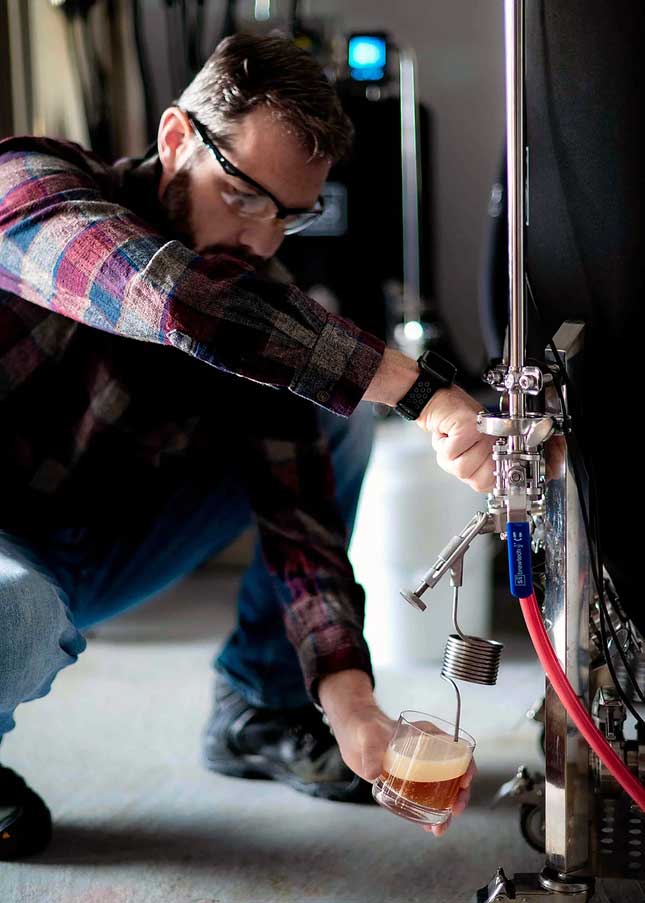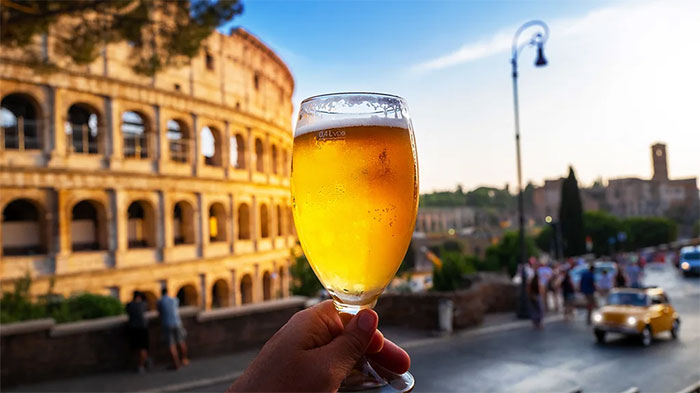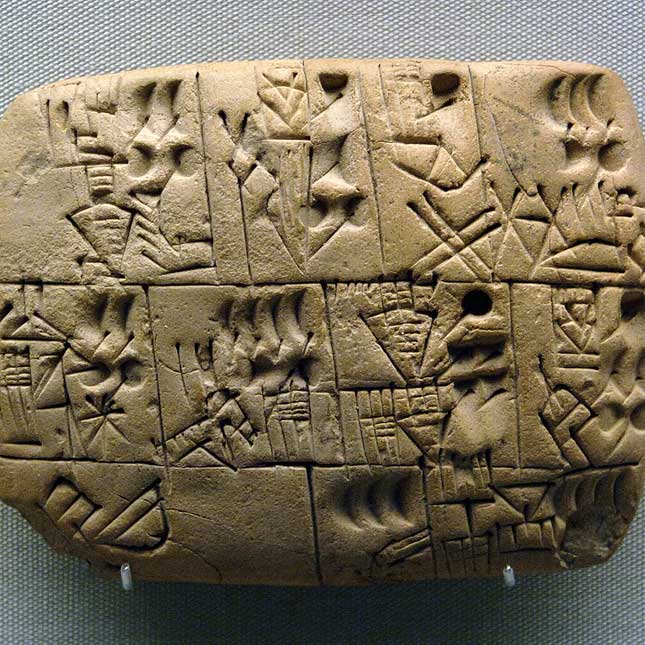Scientist researches reviving ancient beers
Using ancient methods and ingredients, archaeologists are turning back millennia to recreate beers from ancient Egypt, Greece and Rome.
Some of the most interesting beers produced in recent years offer a window into human history. These age-old 'rebrew' beers were enjoyed in many places, from ancient Egypt and Greece to Celtic and Viking Europe. They also like to have plenty of options, with 5,000-year-old stone tablets recording recipes for nearly 20 different beers made from barley.

Mr. Travis Rupp created an ancient line of beer and named him a Beer Archaeologist.
Mr. Travis Rupp , who teaches Classics and Anthropology at the University of Colorado (USA) with professional beer brewing experience, said : 'Recreating ancient beers allows us to touch and taste them. history. It humanizes our ancestors and helps us realize that they are not so different.' It was this combination of skills that helped Mr. Rupp create a line of ancient re-brews , earning him the title of Beer Archaeologist, which is now also the name of his business.

The revival of ancient beers is an opportunity to look back at history.
In addition to impressing modern customers, these ancient brewing methods reveal the simple secret of beer making millennia ago: start by sprouting the grains, then Dry and heat them in water to produce sugar. Yeast is then added to start the fermentation process and create beer.
One major difference between ancient and modern beer brewing is the use of hops . Although hop plants have grown wild in various varieties across Europe for at least 10,000 years, their first recorded use in beer was attributed to French monks in the 9th century. Hops are versatile, providing different effects when added to beer at different times of the heating process: adding it at the beginning accentuates the bitterness; in the middle for optimal flavor; at the end to enhance the aroma.

Mesopotamian clay tablets record the distribution of beer in ancient times.
While the basics of beer brewing have always been the same throughout history, re-brewing brings out the bold flavors of ancient beers centuries before the use of hops , while also imparting Gain useful lessons for brewers today.
Starting in 2016, Mr. Rupp has overseen Avery Brewing's Ales of Antiquity line , spanning both time and geography. One of the ancient world's brew recipes, called Nestor's Cup , is based on a recipe from around 1600-1100 BC and includes barley, Einkorn wheat, acorn powder, and figs. and elderberries. Mr. Rupp also recreated a 900-year-old South American corn beer called 'chicha', which almost got him fired for the unique element of the fermentation process, which was the use of created saliva. out by chewing corn.
While modern beer production relies almost exclusively on closed steel fermentation vessels, ancient brewers used open vessels - typically large ceramic vessels with open lids that allowed the Wild airborne yeasts enter.
Another important pioneer is Mr. Patrick McGovern, a professor at the Penn Museum of the University of Pennsylvania (USA) and often referred to by brewers as the 'Indiana Jones of ancient beer' . In the early 1990s, Mr. McGovern analyzed yellow residue found in bronze drinking vessels in an ancient Turkish tomb dating back 2,700 years and believed it could be the King's tomb. Legendary Midas.
The drink used at this person's funeral turned out to be barley beer mixed with honey and grape wine and including spices such as saffron. Inspired, Mr. McGovern teamed up with American brewer Dogfish Head in 1999 to create a popular beer called Midas Touch . He then went on to collaborate with Dogfish to create a diverse line of ancient beers, most recently the 2022 Tree Thieves beer. This is an ancient Celtic style beer called 'gruit' , which uses botanicals. as a flavoring to reflect the ancient brewing process before hops were used. 'It has the bitter taste of wormwood seeds and carrots ,' Mr. McGovern explains.
Ms. Charles believes that those who have gone before in the field of beer production have left behind valuable lessons. 'I think working with ancient terracotta vessels and grains will be a process used in the future ,' she said. Meanwhile, Mr. Rupp is planning his next discoveries. 'I'm researching how to brew beer with brackish water, which may have been used to make beer in Roman Britain.'
Humanity's love of beer may go back further than we think: in 2018, fermented grains were discovered on a 13,000-year-old stone mortar in a cave in northern Israel - ancient evidence about brewing beer to date.
- France successfully researches plant protection plastics
- China researches supersonic aircraft 5 times faster than the speed of sound
- Acsimet - the great scientist of ancient Greece
- Drinking 2 beers / day causes premature degeneration of brain 6 years
- Why need to revive the mammoth
- Thai girls were first frozen after death
- Who is the first scientist of humanity?
- Vietnamese scientist was honored by the President of Poland
- India's youngest scientist with genius inventions
- Fire was discovered late in Europe
- The ambition to revive the extinct breed
- The mysteries of the ancient supercontinent of the Earth
 Discovered an ancient centipede fossil 99 million years old
Discovered an ancient centipede fossil 99 million years old Discovered bat-like dinosaurs in China
Discovered bat-like dinosaurs in China Discovered a 200-year-old bronze cannon of the coast
Discovered a 200-year-old bronze cannon of the coast Discover 305 million-year-old spider fossils
Discover 305 million-year-old spider fossils